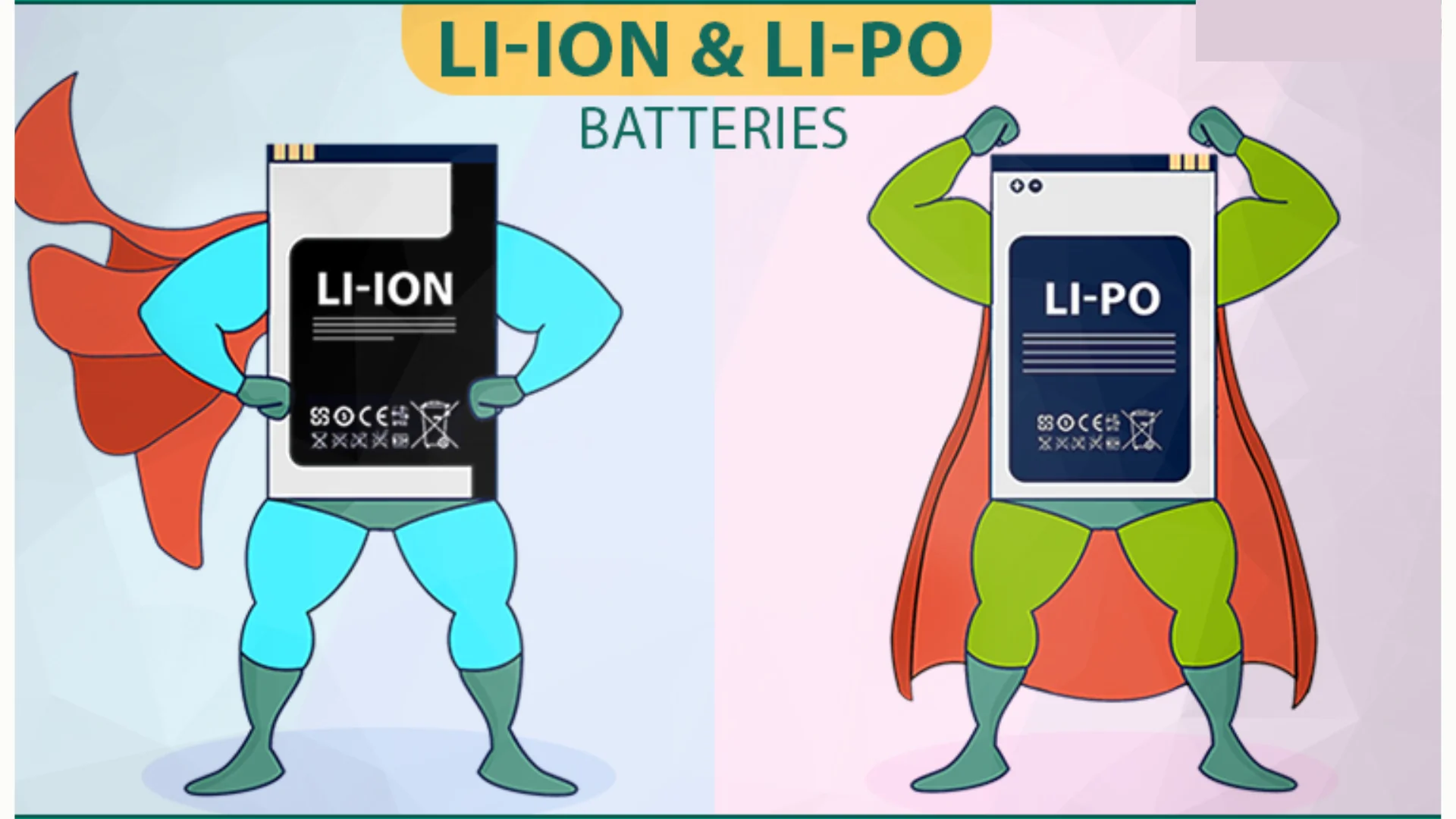
في مجتمع اليوم, والتي تعتمد بشكل متزايد على الأجهزة المحمولة والطاقة, البطاريات حرجة. أيون الليثيوم مقابل بطارية ليثيوم بوليمر هي التقنيات الأكثر شعبية التي أحدثت ثورة في مجال الإلكترونيات المحمولة, سيارة كهربائية, وتخزين الطاقة المتجددة. ولكل منها وظائف واستخدامات فريدة.
لذا, ما هو الفرق? ستقوم هذه المقالة بمقارنة بطارية الليثيوم أيون وبطارية الليثيوم بوليمر بشكل متعمق لمساعدتك على فهمها بشكل أفضل.
تاريخ تطور أيون الليثيوم مقابل بطارية ليثيوم بوليمر
أيون الليثيوم
على الرغم من وجود محاولات لاستخدام أيون الليثيوم في وقت مبكر من الستينيات, لم يكن حتى 1974 أن م. حقق ستانلي ويتنجهام تقدمًا كبيرًا. ويستخدم ثاني كبريتيد التيتانيوم كالكاثود وألومنيوم الليثيوم كالأنود, مما يمنح البطارية كثافة طاقة عالية ويتيح إعادة شحنها. للأسف, يصعب استخدام هذه المواد وتثير الكثير من مشكلات السلامة.
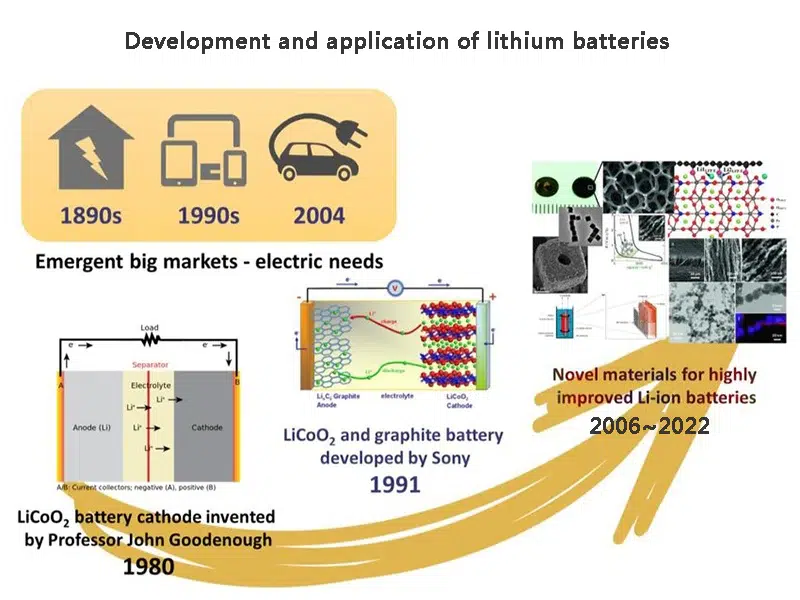
في 1980, جون ب. استبدل جوديناف ثاني كبريتيد التيتانيوم بأكسيد كوبالت الليثيوم ككاثود, مما أدى إلى مضاعفة كثافة طاقة البطارية بشكل غير متوقع. بعد خمس سنوات, طور أكيرا يوشينو طريقة أكثر أمانًا واستقرارًا لتصنيع أول نموذج أولي لبطارية ليثيوم أيون.
من خلال هذه الجهود, وقد فاز الثلاثي بجائزة نوبل في الكيمياء عام 2019 لإسهاماتهم في اختراع أيون الليثيوم. اليوم, تستخدم بطاريات الليثيوم أيون على نطاق واسع في منتجات مثل المصابيح الكهربائية, إمدادات الطاقة المتنقلة وأدوات الطاقة.
بطارية ليثيوم بوليمر
تم اختراع بطاريات الليثيوم بوليمر في نفس الوقت تقريبًا الذي تم فيه اختراع بطاريات الليثيوم أيون والليثيوم المعدني. في 1991, أنتجت شركة سوني أول بطارية ليثيوم بوليمر تجارية, والذي كان طفرة كبيرة في بطارية الليثيوم بوليمر. بعد ذلك, بدأ المزيد والمزيد من الناس في تجربة أشكال مختلفة من بطاريات الليثيوم بوليمر, ولهذا السبب يتم استخدامها الآن في منتجات مختلفة مثل الساعات, سماعات الرأس وما إلى ذلك.
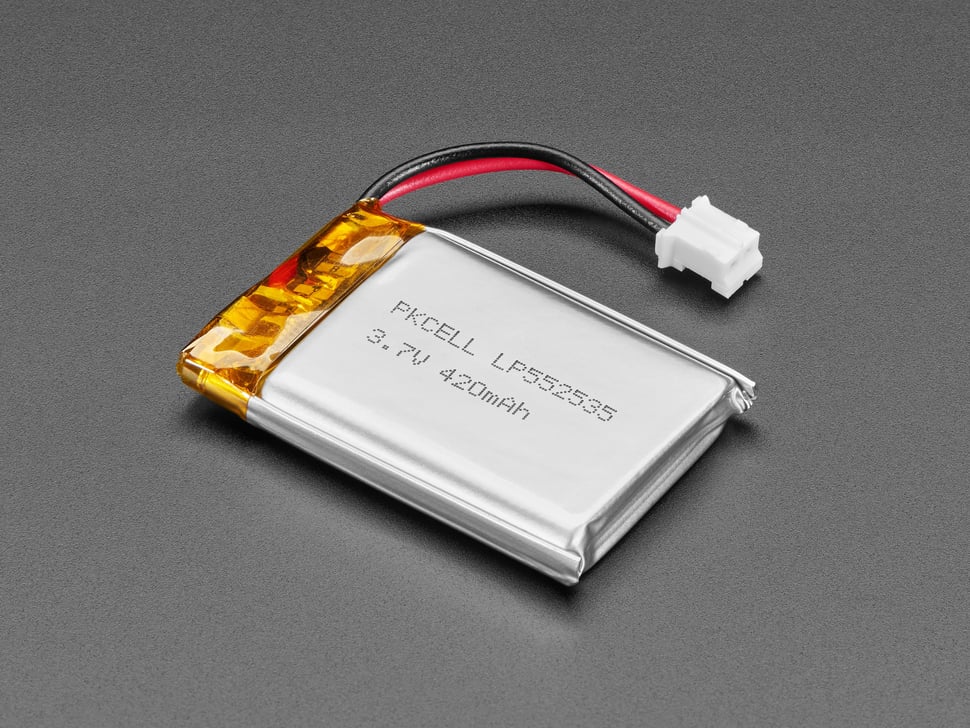
ما هو أيون الليثيوم?
ليثيوم أيون (بطارية ليثيوم أيون) هي بطارية حديثة متقدمة ذات خصائص عالية التقنية. إنها ليست قابلة لإعادة الشحن فقط, ولكن لديها أيضًا كثافة طاقة عالية. على عكس البطاريات الأخرى, ليس له تأثير على الذاكرة ومعدل تفريغ ذاتي منخفض.
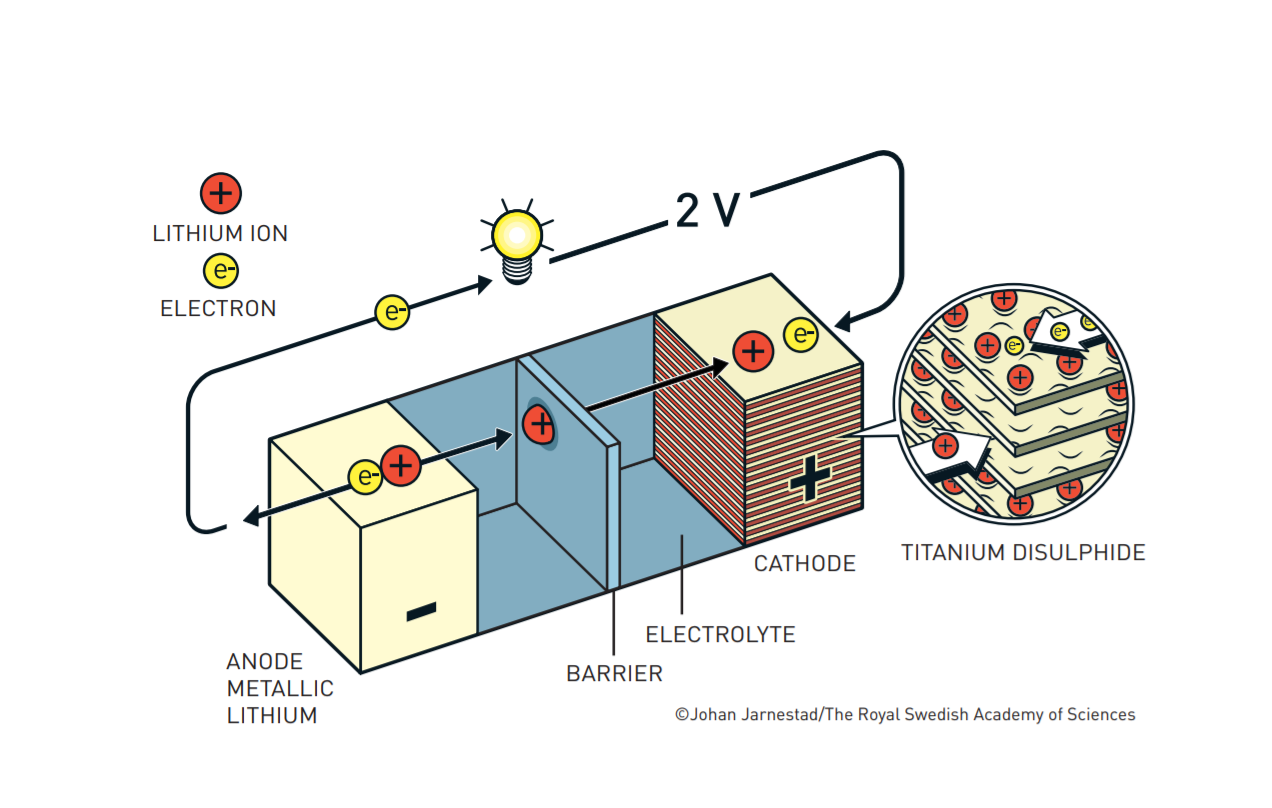
يعتبر أيون الليثيوم فريدًا من حيث أنه يحتوي على أيونات الليثيوم, والتي تتحرك ذهابًا وإيابًا بين القطبين أثناء الشحن والتفريغ. عند الشحن, تنتقل أيونات الليثيوم من الكاثود إلى الأنود, ملء الأنود بأيونات الليثيوم. عند التفريغ, يتم عكس العملية. يتكون الكاثود من مركب الليثيوم والأنود عبارة عن مركب من طبقة الكربون, عادة الجرافيت.
وتستخدم هذه البطاريات على نطاق واسع في مجموعة متنوعة من المعدات الكهربائية والمركبات الكهربائية, كما أنها تحظى بشعبية كبيرة في المجالات العسكرية والفضائية.
ما هي مزايا وعيوب الليثيوم أيون?
ليثيوم أيون ليست مناسبة لجميع الأجهزة, ولديهم مزايا وعيوب. وهنا بعض من مزاياه وعيوبه.
ميزة
كثافة الطاقة العالية
كثافة طاقة أيون الليثيوم عالية جدًا, لذلك يتم استخدامها على نطاق واسع في منتجات 3C, سيارة كهربائية, أنظمة تخزين الطاقة وغيرها من المجالات. في هذه التطبيقات, مطلوب حجم بطارية صغير وسعة كبيرة. لذلك, تعتبر بطاريات الليثيوم أيون ذات كثافة الطاقة العالية هي الأكثر ملاءمة للتشغيل الفعال لهذه الأجهزة.
انخفاض معدل التفريغ الذاتي
تتمتع بطارية ليثيوم أيون بمعدل تفريغ ذاتي أقل من البطاريات الأخرى القابلة لإعادة الشحن, فقط حول 3.5% كل شهر. عند تخزينها في حالة غير مستخدمة, لا يوجد أي تفاعل كيميائي تقريبًا في الداخل وهو مستقر جدًا. وهذا يجعلها متفوقة على البطاريات الأخرى القابلة لإعادة الشحن.

صيانة مجانية
لا يتطلب الليثيوم أيون إضافة حمض منتظم, كما أنها لا تخاطر بالانتفاخ بسبب الشحن غير المناسب, كما تفعل بطاريات الرصاص الحمضية الخالية من الصيانة. يمكن أن تكون خالية من الصيانة حقًا, مما يجعل الاستخدام اليومي أسهل وأكثر ملاءمة. في نفس الوقت, يتم التخلص من تكلفة إدارة صيانة البطارية, جعل بطاريات الليثيوم أكثر فعالية من حيث التكلفة.
مواصفات مختلفة
ليثيوم أيون لديها مجموعة متنوعة من المواصفات, مناسبة لسيناريوهات التطبيق المختلفة, كل مواصفات يمكن أن تلبي احتياجات منتجات محددة, توفير خيار غني.
لا يوجد تأثير الذاكرة
الليثيوم أيون ليس له أي تأثير على الذاكرة, يمكن استخدامها مع هذه التهمة, الحالة المثالية هي 20%-80% من الشحنة الضحلة, مما يساعد على إطالة عمر البطارية.
عيب
بحاجة للحماية
تعتبر بطارية ليثيوم أيون أفضل من البطاريات الأخرى الموجودة في السوق من حيث الشحن السريع, الأداء الجيد وعمر البطارية الطويل, ولكن إذا لم تتم إدارتها بشكل صحيح, من السهل الشحن الزائد والهروب الحراري, التسبب في حوادث السلامة, ولكن وجود نظام إدارة البطارية (خدمات إدارة المباني) يمكن أن يحل مشكلة الهروب الحراري, يمكن تنفيذ الإدارة الحرارية والحماية من الحرارة الزائدة.
أمن خدمات النقل
تفرض العديد من شركات الطيران قيودًا صارمة على حمل أيونات الليثيوم على متن الطائرات, لذلك يتم عادةً إجراء الكثير من عمليات الشحن عن طريق السفن, مما يزيد من الصعوبة.
التكلفة العالية
الليثيوم أيون هي 40% أكثر تكلفة من الأنواع الأخرى من البطاريات, ولكن مع تزايد الطلب والمزيد من الثورات التكنولوجية في تكنولوجيا البطاريات, مما لا شك فيه أننا سنرى بطاريات ليثيوم أيون بأسعار معقولة قريبًا. فضلاً عن ذلك, على الرغم من أن التكلفة الأولية أعلى بكثير من تكلفة بطاريات الرصاص الحمضية, التكلفة الإجمالية على المدى الطويل أقل بسبب عدم الحاجة إلى الصيانة ودورة الحياة الطويلة, مما يجعلها فعالة من حيث التكلفة على المدى الطويل.
ما هي بطارية ليثيوم بوليمر?
بطاريات ليثيوم بوليمر, تُعرف أيضًا باسم البطاريات الناعمة, هي نوع من البطاريات القابلة لإعادة الشحن. وهو مشابه لبطاريات الليثيوم أيون, لكنه يستخدم البوليمر, الصلبة الجافة, والكهارل الهلامية بدلاً من الشوارد السائلة النموذجية. تتمتع بطاريات الليثيوم بوليمر بكثافة طاقة أعلى من بطاريات الليثيوم الأخرى وهي مناسبة بشكل خاص للاستخدام في الأجهزة ذات متطلبات الوزن الصارمة, مثل الطائرات التي يتم التحكم فيها عن طريق الراديو.
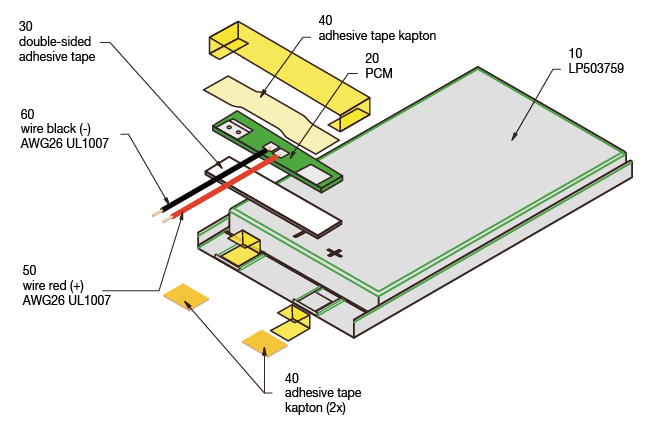
ما هي مزايا وعيوب بطارية ليثيوم بوليمر?
مثل الليثيوم أيون, بطارية ليثيوم بوليمر لها بعض المزايا والعيوب.
ميزة
كثافة الطاقة العالية
تتمتع بطارية الليثيوم بوليمر بضعف كثافة طاقة البطاريات الأخرى. لذلك يمكنه توفير طاقة مستمرة للأجهزة التي تتطلب تيارات عالية.
لا يوجد تأثير الذاكرة
بطارية ليثيوم بوليمر ليس لها أي تأثير على الذاكرة ويمكن استخدامها مع الشحن دون التأثير على سعة البطارية.
أداء جيد للسلامة
تستخدم بطارية الليثيوم البوليمر عبوات مرنة من الألومنيوم والبلاستيك, وهو يختلف عن الغلاف المعدني للبطارية السائلة, وبسبب استخدام مواد البوليمر, لن تشتعل البطارية وتنفجر, والبطارية نفسها تتمتع بما يكفي من الأمان. حتى لو كانت هناك مشكلة, سوف تنتفخ فقط على الأكثر, ولا تنفجر بسهولة مثل البطاريات السائلة.
صيانة مجانية
لا تتطلب بطارية ليثيوم بوليمر الكثير من الصيانة مثل البطاريات الأخرى, وهذه البطارية غير مؤلمة للغاية وسهلة الاستخدام.
مقاومة داخلية منخفضة
بسبب استخدام خلايا خاصة, المقاومة الداخلية لبطارية الليثيوم بوليمر أصغر من البطاريات السائلة العامة, تقليل معدل التفريغ الذاتي, ودعم التفريغ الحالي الكبير, وهو مناسب جدًا لنماذج التحكم عن بعد وهو خيار مثالي لاستبدال بطاريات هيدريد معدن النيكل.
خصائص تفريغ أفضل
تستخدم بطارية ليثيوم بوليمر إلكتروليتات هلامية, التي تتميز بخصائص تفريغ أكثر سلاسة ومنصات تفريغ أعلى من الشوارد السائلة.
أكثر مرونة
يمكن تصنيع بطارية ليثيوم بوليمر بأشكال وأحجام مختلفة وفقًا للاحتياجات المختلفة لتلبية متطلبات الأجهزة المختلفة.
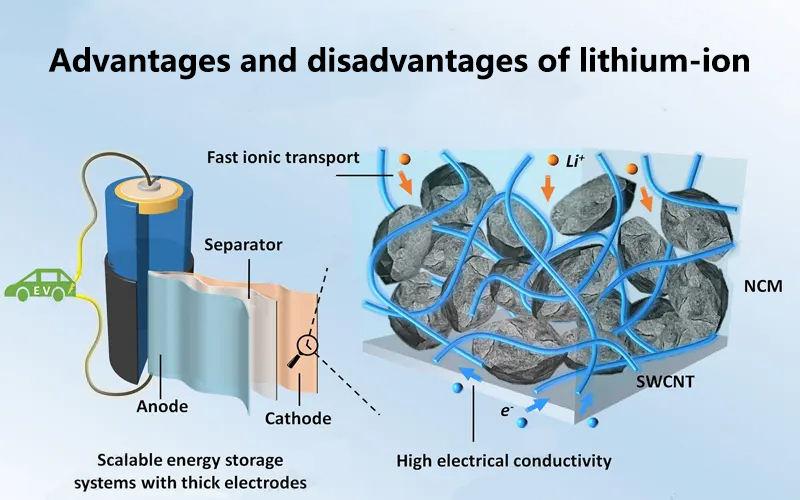
عيب
ارتفاع درجة الحرارة
يمكن لبطارية الليثيوم بوليمر أن تسخن بسهولة وتتلف, خاصة عند الفولتية العالية, والتي يمكن أن تؤثر على أدائها وطول العمر.
قابل للكسر
هذه البطاريات هشة وتتطلب حماية الدائرة لتعمل بأمان. يمكن أن يؤدي الشحن الزائد أو التفريغ الزائد إلى تدمير قابلية عكس المواد الكيميائية الموجودة داخل البطارية, مما يؤثر بشكل خطير على أدائها.
تحتاج إلى آلية أمنية
تحتاج بطارية الليثيوم بوليمر أيضًا إلى نوع من آلية الأمان لتقليل الضغط والجهد الداخلي. الجانب السلبي هو أنه يضيف وزنا للبطارية.
تنوع ضعيف
لأن بطارية الليثيوم البوليمر يمكنها زيادة أو تقليل سمك الخلية حسب الاحتياجات الفعلية, تنوعها ضعيف, وهو أيضًا عيب التصميم الحساس.
كم من الوقت ستستمر بطاريات الليثيوم بوليمر؟?
تتمتع بطارية ليثيوم بوليمر بعمر خدمة طويل. يستمر حوالي 900 ل 1,500 دورات الشحن من الشحن الكامل إلى الاستنفاد إلى الشحن الكامل مرة أخرى.
هل بطارية ليثيوم بوليمر تدوم لفترة أطول من بطارية ليثيوم أيون?
عند مقارنة أداء الاثنين, سوف يشمل حتما عمر بطارية الليثيوم أيون مقابل بطارية الليثيوم بوليمر, وهو جزء مهم من المقارنة. أما بالنسبة لليثيوم أيون, إذا تم شحنهم وتفريغهم مرة واحدة يوميًا في المتوسط, يمكن استخدامها حول 4,000 مرات (4000/365≈10.96). بوضوح, بطارية ليثيوم أيون تدوم لفترة أطول من بطارية الليثيوم بوليمر. ليس لها أي تأثير على الذاكرة, حتى تتمكن من شحنه عندما تحتاج إليه. سيؤدي القيام بذلك أيضًا في النهاية إلى إطالة عمر الخدمة الإجمالي.
أيهما أفضل, بطارية ليثيوم أيون مقابل بطارية ليثيوم بوليمر?
عند مقارنة بطارية الليثيوم أيون وبطارية الليثيوم بوليمر, قد تتساءل أيهما أفضل. تتمتع كل من تقنيات البطاريات الحديثة بمزايا وعيوب. يتمتع أيون الليثيوم بكثافة طاقة أعلى, لا يوجد تأثير الذاكرة, وتكلفة أقل. لكن, وقد تكون غير مستقرة أو حتى تنفجر تحت درجات حرارة أو ضغوط عالية.
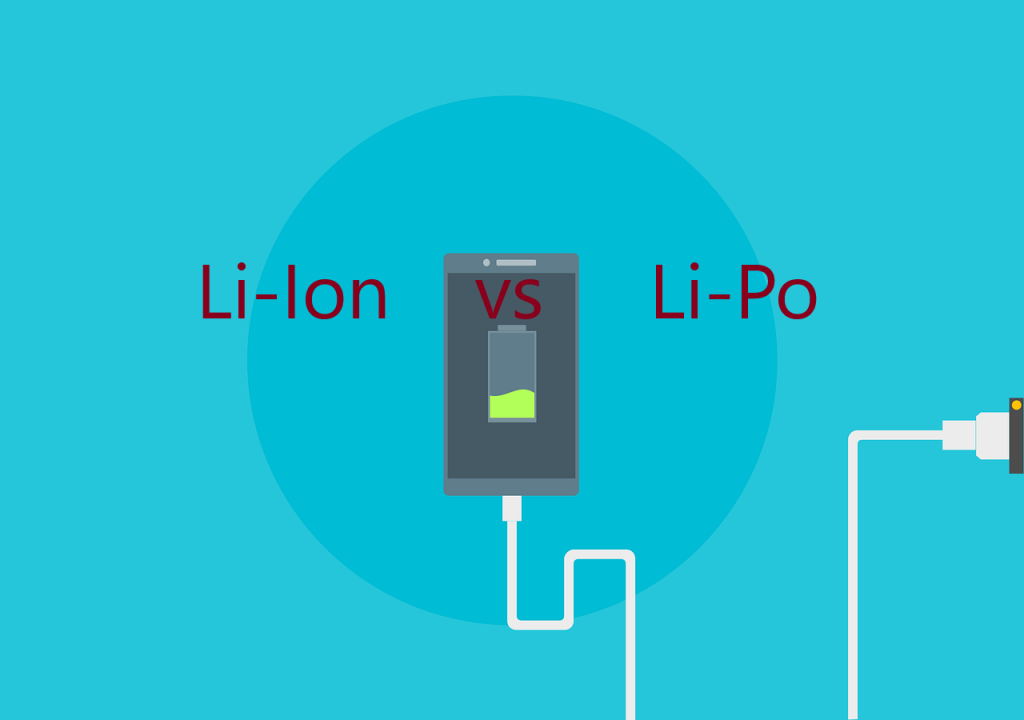
بطارية ليثيوم بوليمر, على الجانب الآخر, فهي أخف وزنا وأكثر مرونة. لأن بنيتها صلبة وجافة, خطر التسرب منخفض. لكن, فهي أغلى من الليثيوم أيون, لديهم كثافة طاقة أقل, ولها عمر أقصر. فى السنوات الاخيرة, مع تقدم التكنولوجيا, لقد أدى استخدام أيونات الليثيوم إلى حل بعض مشكلات السلامة, مما يجعلها أكثر أمانًا وموثوقية.
ما هو الفرق بين الليثيوم أيون والليثيوم بوليمر ?
عندما يتعلق الأمر ببطاريات الليثيوم بوليمر وبطاريات الليثيوم أيون, إنهم مختلفون في نواح كثيرة.
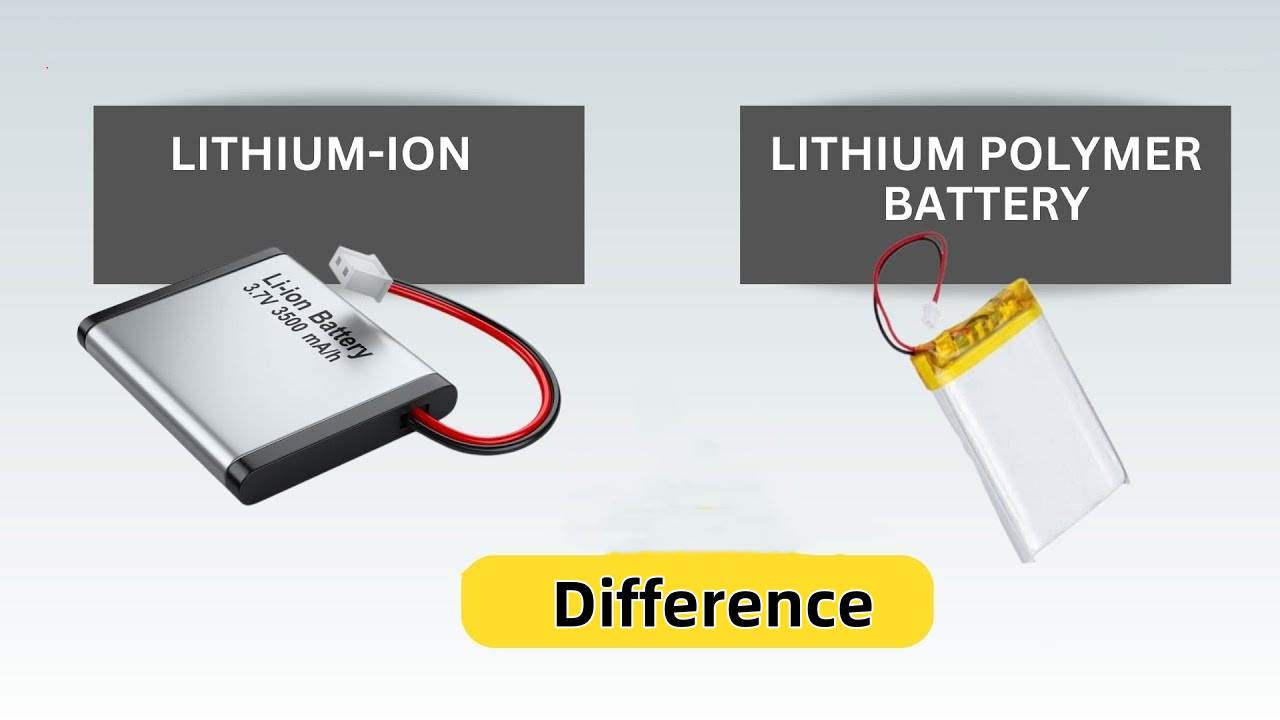
مادة المنحل بالكهرباء
يستخدم أيون الليثيوم إلكتروليتًا سائلًا أو هلاميًا يتدفق بين الأنود والكاثود في البطارية, بينما تستخدم بطارية الليثيوم بوليمر إلكتروليت بوليمر صلب أو غرواني, مما يسمح لها أن تكون مصممة لتكون أرق, أكثر مرونة, وفي مجموعة متنوعة من الأشكال.
تسليم الطاقة
ليثيوم أيون قادرة بشكل عام على إنتاج طاقة أعلى, مما يجعلها أكثر ملاءمة للتطبيقات التي تتطلب إنتاج طاقة عالية.
جانب التكلفة
تعتبر بطاريات الليثيوم أيون أكثر فعالية من حيث التكلفة من بطاريات الليثيوم بوليمر. تتكلف بطاريات الليثيوم أيون عادة ما بين $30 و $650 كل, بينما تبلغ تكلفة بطارية الليثيوم بوليمر ما بين $100 و $3,300 كل, حسب متطلبات الجودة والجهد للبطارية.
الجانب الحجمي
قد يتم تقليل بطارية ليثيوم بوليمر مقارنة ببطارية الليثيوم أيون القياسية. وهذا يعني أنه لنفس الحجم, قد يخزن أيون الليثيوم المزيد من الطاقة.
منطقة التطبيق
يتم استخدام ليثيوم أيون على نطاق واسع في أنظمة UPS, سيارة كهربائية, تخزين الطاقة الشمسية وغيرها من المجالات, ولكن أيضًا للأجهزة المحمولة مثل الهواتف المحمولة, الكاميرات الرقمية وما إلى ذلك. توجد بطاريات الليثيوم بوليمر بشكل أكثر شيوعًا في بعض المنتجات التي تتطلب تصميمًا خفيف الوزن وإخراج طاقة صغير, مثل أنظمة إنذار السيارات, سماعات بلوتوث, وهكذا.
على العموم, تعتمد البطارية التي تختارها على احتياجات التطبيق المحددة, وكذلك أهمية التكلفة, القوة ومرونة التصميم.
سيناريوهات التطبيق المختلفة اختر بطارية ليثيوم أيون مقابل بطارية ليثيوم بوليمر?
عند مقارنة بطارية ليثيوم أيون مقابل بطارية ليثيوم بوليمر, يعتمد نوع البطارية التي تريد اختيارها على الأنواع المختلفة لسيناريوهات التطبيق وتفضيلات المستخدم. إذا كنت تريد بطارية ذات مصدر طاقة مناسب, إذًا ستكون بطاريات الليثيوم بوليمر هي الخيار الأمثل لك. لكن, إذا كنت تريد قوة أطول, بطارية ليثيوم أيون مع دورات بطارية أفضل سيكون الخيار الأمثل لك.
خاتمة
بينما تشترك بطارية ليثيوم أيون مقابل بطارية ليثيوم بوليمر في نفس الأساس الكيميائي لتوفير حل طاقة محمول موثوق به, لديهم خصائص فريدة تجعلهم مناسبين لتطبيقات مختلفة. إذا كان لديك أي أسئلة أكثر تحديدًا عن أيونات الليثيوم أو كنت ترغب في معرفة المزيد حول التطبيق الأفضل بالنسبة لك, يرجى الاتصال بفريق تكنولوجيا البطاريات GycxSolar.
أسئلة مكررة
أيهما أفضل: بطارية ليثيوم أيون مقابل بطارية ليثيوم بوليمر?
يعتمد الاختيار على المتطلبات المحددة للجهاز أو التطبيق; يوفر ليثيوم أيون الاستقرار وكثافة الطاقة, بينما توفر بطارية الليثيوم بوليمر مرونة في الشكل والحجم.
هل تدوم بطاريات الليثيوم أيون لفترة أطول من بطاريات الليثيوم بوليمر?
على العموم, تميل بطاريات الليثيوم أيون إلى الاستمرار لفترة أطول من بطاريات الليثيوم بوليمر, خاصة في ظل ظروف الاستخدام والشحن المماثلة.
كم مرة يمكن إعادة شحن بطارية الليثيوم بوليمر؟?
يمكن لبطارية الليثيوم بوليمر التي يتم صيانتها جيدًا أن تصمد أمام حوالي 300 ل 500 دورات الشحن قبل حدوث خسارة كبيرة في السعة, لكن العمر الفعلي يعتمد على أنماط الاستخدام والصيانة.
